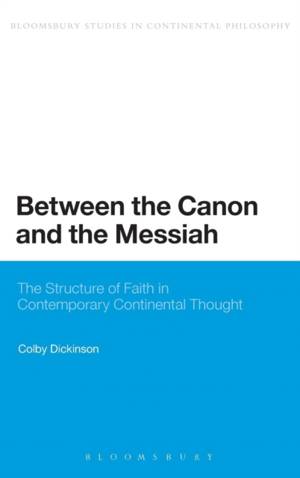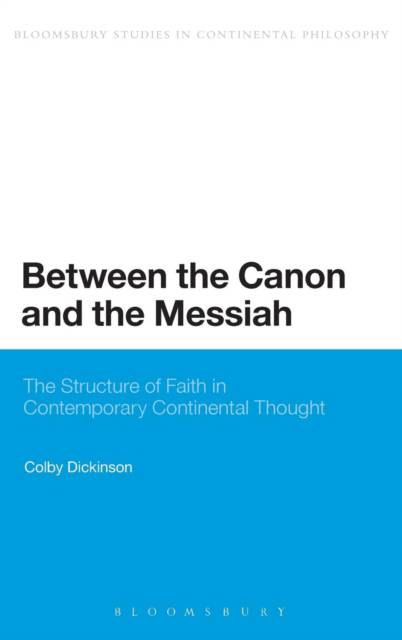
- Afhalen na 1 uur in een winkel met voorraad
- Gratis thuislevering in België vanaf € 30
- Ruim aanbod met 7 miljoen producten
- Afhalen na 1 uur in een winkel met voorraad
- Gratis thuislevering in België vanaf € 30
- Ruim aanbod met 7 miljoen producten
Between the Canon and the Messiah
The Structure of Faith in Contemporary Continental Thought
Colby DickinsonOmschrijving
Dickinson traces the development of two concepts, the messianic and the canonical, as they circulate, interweave and contest each other in the work of three prominent continental philosophers: Walter Benjamin, Jacques Derrida and Giorgio Agamben, though a strong supporting cast of Jan Assmann, Gershom Scholem, Jacob Taubes and Paul Ricoeur, among others, also play their respective roles throughout this study. He isolates how their various interactions with their chosen terms reflects a good deal of what is said within the various discourses that constitute what we have conveniently labelled, often in mistakenly monolithic terms, as 'Theology'.
By narrowing the scope of this study to the dynamics generated historically by these contrasting terms, he also seeks to determine what exactly lies at the heart of theology's seemingly most treasured object: the presentation beyond any representation, the supposed true nucleus of all revelation and what lies behind any search for a 'theology of immanence' today.Specificaties
Betrokkenen
- Auteur(s):
- Uitgeverij:
Inhoud
- Aantal bladzijden:
- 288
- Taal:
- Engels
- Reeks:
Eigenschappen
- Productcode (EAN):
- 9781441192240
- Verschijningsdatum:
- 9/05/2013
- Uitvoering:
- Hardcover
- Formaat:
- Genaaid
- Afmetingen:
- 160 mm x 231 mm
- Gewicht:
- 566 g

Alleen bij Standaard Boekhandel
Beoordelingen
We publiceren alleen reviews die voldoen aan de voorwaarden voor reviews. Bekijk onze voorwaarden voor reviews.







